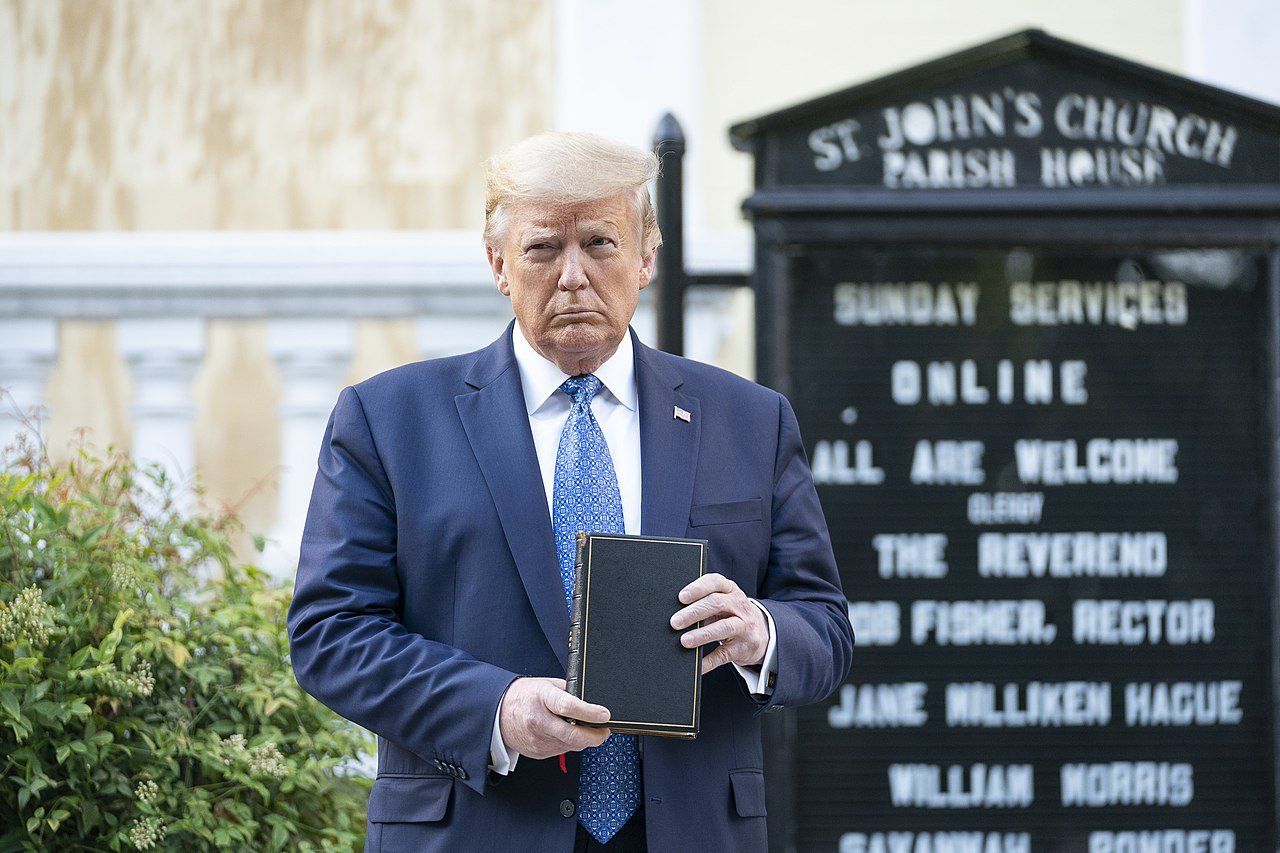Religious scholars and political reporters have had a lot to say about former President Donald Trump's bond with far-right white evangelicals, including the trend of what Chicago-based author Blake Chastain describes as "exvangelicals" — that is, former evangelicals who have grown disillusioned with fundamentalist Protestant Christianity and abandoned it.
These "exvangelicals" come in a variety of forms. Some have given up on religion in general, while others are still identify as Christian but have moved to Mainline Protestant denominations. And in many cases, exvangelicals were turned off by white evangelicals' unwavering devotion to Trump.
Chastain, host of the podcast "Exvangelical" and author of the new book "Exvangelical and Beyond: How American Christianity Went Radical and the Movement That's Fighting Back," discussed the exvangelical trend during a late September interview with Salon's Amanda Marcotte.
READ MORE:'This chills me': Fascism experts horrified by Trump’s call for 'really violent day' of policing
Chastain, himself an exvangelical, emphasized that far-right evangelicals care about political "identity" more than "theology."
"Conservative evangelicals decry identity politics," Chastain told Marcotte, "but they also take part in them. You can see through different surveys that have been done, especially since 2016, that there's a drift of what the word 'evangelical' means. Many people who have not participated in a local evangelical church or community self-describe as 'evangelical.' It's a desire to affiliate with Donald Trump, the GOP, or general conservatism. It's drifted for those theological markers."
Chastain continued, "But even before that, scholars for years have argued that theology is not necessarily the defining characteristic of evangelicalism. Whiteness, capitalism, and power helped to develop an evangelical industry. The theology takes a back seat. That may not be the case for every single person that uses the term 'evangelical.' But conservative white evangelicals act in a particular way, and that deserves our attention. It deserves to be criticized within those terms, as much as whether they live up to their espoused theological beliefs."
The author noted that far-right evangelicals are extremely insular, shunning "more progressive forms of Christianity" and avoiding "dialogue with people from other faith communities."
"Evangelical leaders could reach out to exvangelical commentators, who would happily accept a reasonable request for public conversations," Chastain told Marcotte. "Instead, they characterize ex-evangelicals as people who simply wanted to leave because they wanted to sin, or because there was some fleeting online social clout. That feels disingenuous."
READ MORE: Former Trump lawyer punches major hole in plan to contest the 2024 election
Chastain added, "Instead of listening to what we have to say or speaking to us directly, they'd rather criticize a theoretical person. They don't want the perspective of someone who can, with examples, explain why they left. Ironically, we have insights they could benefit from. We can tell them why their beliefs are harmful. But they don't wish to hear that."
READ MORE: The shocking truth behind Trump's hate-fueled political strategy
Read Amanda Marcotte's full interview with Blake Chastain at this link.
From Your Site Articles
- Evangelicals embrace Trump with 'desperate Christian defenses of a convicted felon': expert ›
- 'He wins or we lose': Author explains why no matter what Trump does — evangelicals 'don’t care' ›
- Harris could get 'the highest level of evangelical support since Carter' — here’s how: pastor ›
Related Articles Around the Web
